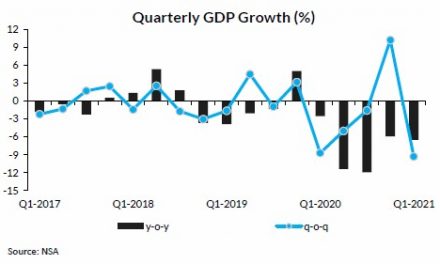
Private sector credit under threat – deposits grow by 7% but advances by only 2% showing the current distortion in retail banking

“The impact of the challenging economic climate was certainly felt in the financial services sector. The Namibian economy had to endure the main elements that detract from economic growth, namely high unemployment, harsh environmental conditions, increasing inflation, low commodity prices and lower investor confidence” said Oscar Capelao, FirstRand Namibia’s Chief Financial Officer, when he released the group’s interim results on Thursday.
For the period to December 2018, profit before tax grew by 4.1% to N$812.3 million against the previous year’s N$780 million. Capelao attributes this growth to their investment in digitisation and self-service banking channels.
But the group’s performance rests mostly on the large gap between deposits and advances. Where deposits grew by 7% to N$34.7 billion, net advances only managed to eke out a paltry 2% growth, now standing at N$29.1 billion. The distortion is even bigger in the retail banking sub-component where deposits grew a formidable 13.3%, indicating the public’s propensity to save instead of spending or investing.
Total assets increased by 8% to N$ 42.1 billion (2017: N$ 39.0 billion).
The group operating costs have increased by 6.9% to N$ 1 020.1 million (2017: N$ 954.0 million). This is reflected in our cost to income ratio of 51.7% (2017: 52.1%). “This level of cost growth is in-line with inflation and demonstrates the measures taken by the group to manage discretionary spending, while managing structural cost programmes to realise efficiency gains that can be invested in growth initiatives,” FirstRand stated.
Net interest income grew by 10.5% to N$ 1 001.1 million (2017: N$ 906.2 million) while non-interest income, banking fees and commissions, grew by 6.4% following a rise of 7.2% in the fee structure.
Earnings per share increased to 208.9 cents (2017: 198.1 cents). Return on average equity reduced to 22.4% (2017: 23.3%). The return on average assets was in line with the previous year’s performance, coming down from 2.8% to 2.7%.













































